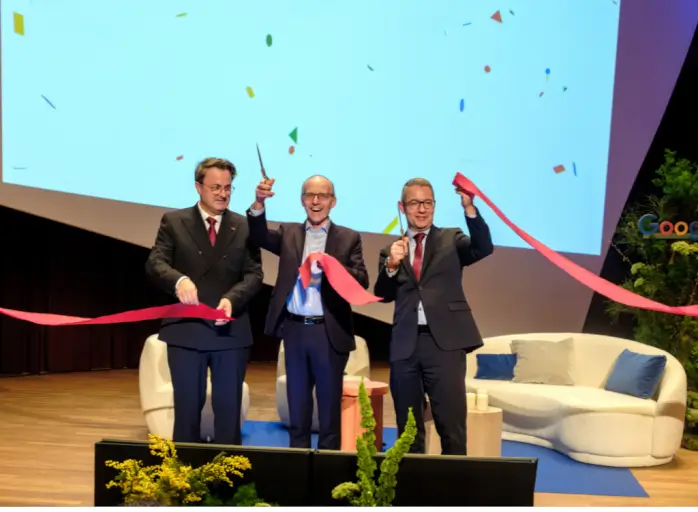

Enabling value creation from data
Data-based research can generate a multitude of knowledge in the health space, but it is a complex issue as health data is highly sensitive and protected by strict European and national regulations. The Luxembourg National Data Service is a pioneering initiative aimed at developing solutions for the safe, secure and legal sharing and reuse of data.
 Lena Mårtensson
Lena Mårtensson
Stimulating data-driven innovation is high on Luxembourg’s agenda. However, generating a maximum of value from data requires a fully functioning data market where data from multiple sources is accessible and usable in a manner that guarantees data protection and personal privacy. To enable such a market, the Luxembourg government saw the need for a service able to provide guidance for the secure processing of sensitive data during all the phases of the data economy value chain.
This is why the Luxembourg National Data Service (LNDS) was created in late 2022. “Our role is to provide services that enable value creation from public sector data. We also facilitate the sharing and reuse of data for public and private data partners in a way that fully respects privacy and other regulations,” explains Bert Verdonck, CEO of the young organisation. “Our approach is quite unique on the international level: while initiatives in other countries tend to address this topic sector by sector, we target all sectors and are supported by several government ministries.”
Secure processing environments for sensitive data
 The LNDS focuses on making data that is controlled by public entities – government administrations, public research organisations or other public bodies – available for further research and analyses. “Much data collected by the public sector in Luxembourg is already fully open and available on the data.public.lu platform. But not all data can be made accessible in this way as it may be too sensitive from the point of view of privacy, competitiveness or national interest,” says Mr Verdonck. “We are developing solutions for providing access to sensitive data in a restrictive manner, once users have requested and obtained permission, and under certain, controlled conditions.”
The LNDS focuses on making data that is controlled by public entities – government administrations, public research organisations or other public bodies – available for further research and analyses. “Much data collected by the public sector in Luxembourg is already fully open and available on the data.public.lu platform. But not all data can be made accessible in this way as it may be too sensitive from the point of view of privacy, competitiveness or national interest,” says Mr Verdonck. “We are developing solutions for providing access to sensitive data in a restrictive manner, once users have requested and obtained permission, and under certain, controlled conditions.”
He points out that data sharing hurdles are not primarily related to software or technical problems. “The main challenges are often legal and organisational. What is allowed to be done with this data? Has the purpose of the data processing been clearly defined? Have all the needed checks been done? Is there a process and audit mechanism in place? Are all regulations being respected? These and more are the really complex questions, and we will develop services that help our data partners to share and access data in the right way.”
We are developing solutions for providing access to sensitive data in a restrictive manner, once users have requested and obtained permission, and under certain, controlled conditions.
The intention is to give access through secure processing environments which would allow researchers to do the agreed research only and obtain results without extracting the actual data. Such digital environments can be run in the cloud with fully encrypted data and controlled access that only allows specific people from the data provider to input data and predefined representatives of the data user to do the processing. Processes can also be put in place to control what information is taken out at the end.
The quality of the data also needs to be taken into account. “Not all public data is of sufficient quality to be used for certain research purposes,” Mr Verdonck points out. “We offer services to help clean and standardise data in close collaboration with our data partners.”
Cross-border services
The LNDS is already working on a number of concrete projects, which allows the team to co-create its services together with data users and providers. One such initiative is CLINNOVA, a cross-border research project aimed at realising the benefits of precision medicine for treatment decisions through data federation, standardisation, and interoperability notably involving the Luxembourg Institute of Health.
“Health is a very intriguing field and very interesting to pioneer,” says Mr Verdonck. “One of the most sensitive identifying data is the human genome, and if we are able to create all the services needed to treat genome data, I’m quite sure that we can do anything!”
If we are able to create all the services needed to treat genome data, I’m quite sure that we can do anything!
The cross-border perspective is essential. “The research sector needs to combine data from different countries, which from a legal perspective is not easy. We are very active in a range of European projects, notably GAIA-X that is aimed at developing the foundations of a European federated, open data infrastructure, and we only develop services that shall be usable across borders. Although our initial focus is on public research, our intention is also to make all our tools and services available to the private sector.”
Speeding up the access to data
The time needed to get access to data is currently a challenge. “Our ultimate objective is to make it possible to do research on larger volumes of data and much faster than today,” says Mr Verdonck. “Sometimes it can take researchers a year or more just to get the permission to use the necessary data. We aim to reduce this to less than a month. If we manage to achieve that, many more researchers will be able to do research on larger data sets in a fully controlled manner, and the society will reap the benefits.”
Photos: © Luxinnovation/Michel Brumat







